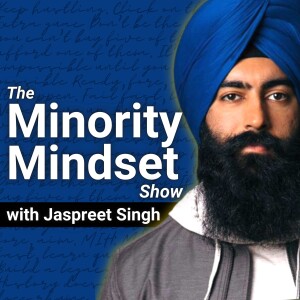

Stephen Trzeciak, Compassionomics: the evidence base for compassion
Professor Stephen Trzeciak, Chief of Medicine, Cooper University Healthcare and Cooper Medical School of Rowan University, Camden, New Jersey is co-author with Dr Anthony Mazzarelli of the book Compassionomics: The Revolutionary Scientific Evidence that Caring Makes a Difference. His personal quest is “to make healthcare more compassionate through science.”
A specialist in Intensive Care, Stephen’s research over a 20-year period had focused on resuscitation science. The trajectory of his life’s work changed when he reflected on a question that his 12-years old son had been set as a school assignment: “What is the most pressing problem of our time?” It seemed to him that the most pressing problem of our time, through the lens of his experience as a physician, is the “crisis in compassion.”
In the US, for example, 50% of patients believe that neither the healthcare system nor healthcare providers are compassionate. Physicians miss 60-90% of opportunities to respond to patients with compassion. Data from the Mayo Clinic shows that the median time before interruption when a patient is trying to explain their reason for going to a doctor is just 11 seconds.
More than a third of physicians suffer from depersonalisation, an inability to make a personal connection. In an era of electronic patient records, physicians typically spend more time looking at a computer screen than looking a patient in the eyes.
In partnership with colleague Dr Anthony Mazzarelli, Stephen set himself the challenge of answering the question “So what? Does compassion really matter?” in quantitative terms. 1,000 papers later they had found overwhelming evidence that compassion matters in measurable ways for patients and for medical practitioners.
He considers himself “a work in progress.” Contrary to the belief he once held that people were either wired for compassion or they were not, he says there is plentiful evidence that compassionate behaviours can be taught and learnt.
Trzeciak and Mazzarelli found that there were 24 different mechanisms whereby compassion could benefit patients. By way of example, if you are compassionate towards your patients you are more likely to be meticulous and less prone to making major medical errors. Research shows that if you are compassionate towards your patients, they are more likely to adhere to the course of treatment.
In the psychological domain it might be intuitively evident that compassion for others can modulate the psychological distress of others. Compassionomics references the clinical evidence for this.
Stephen has an ongoing research programme at Cooper University Healthcare and Cooper Medical School of Rowan University around the quantification of the effects of compassion in healthcare. He maintains that it is not until you quantify the impact for patients and for those who care for them that compassion will be given appropriate priority. It belongs in the domain of evidence-based medicine. He says “there wouldn’t be a compassion crisis in healthcare if we really understood the magnitude of the effect.”
As a specialist in intensive care medicine, Stephen routinely meets people “on the worst day of their life” and was a prime candidate for burnout himself. Conventional wisdom might be that he should maintain a certain emotional detachment from his work. But the research reveals a strong inverse association between physician compassion and burnout – “compassion can be a powerful therapy for the giver too.” When you bear witness to pain and suffering you activate the pain centres of your brain, but moving on to compassionate action activates the reward pathways. “Compassion feels good” and caring for others is fulfilling.
More Episodes
All Episodes>>Create Your Podcast In Minutes
- Full-featured podcast site
- Unlimited storage and bandwidth
- Comprehensive podcast stats
- Distribute to Apple Podcasts, Spotify, and more
- Make money with your podcast











